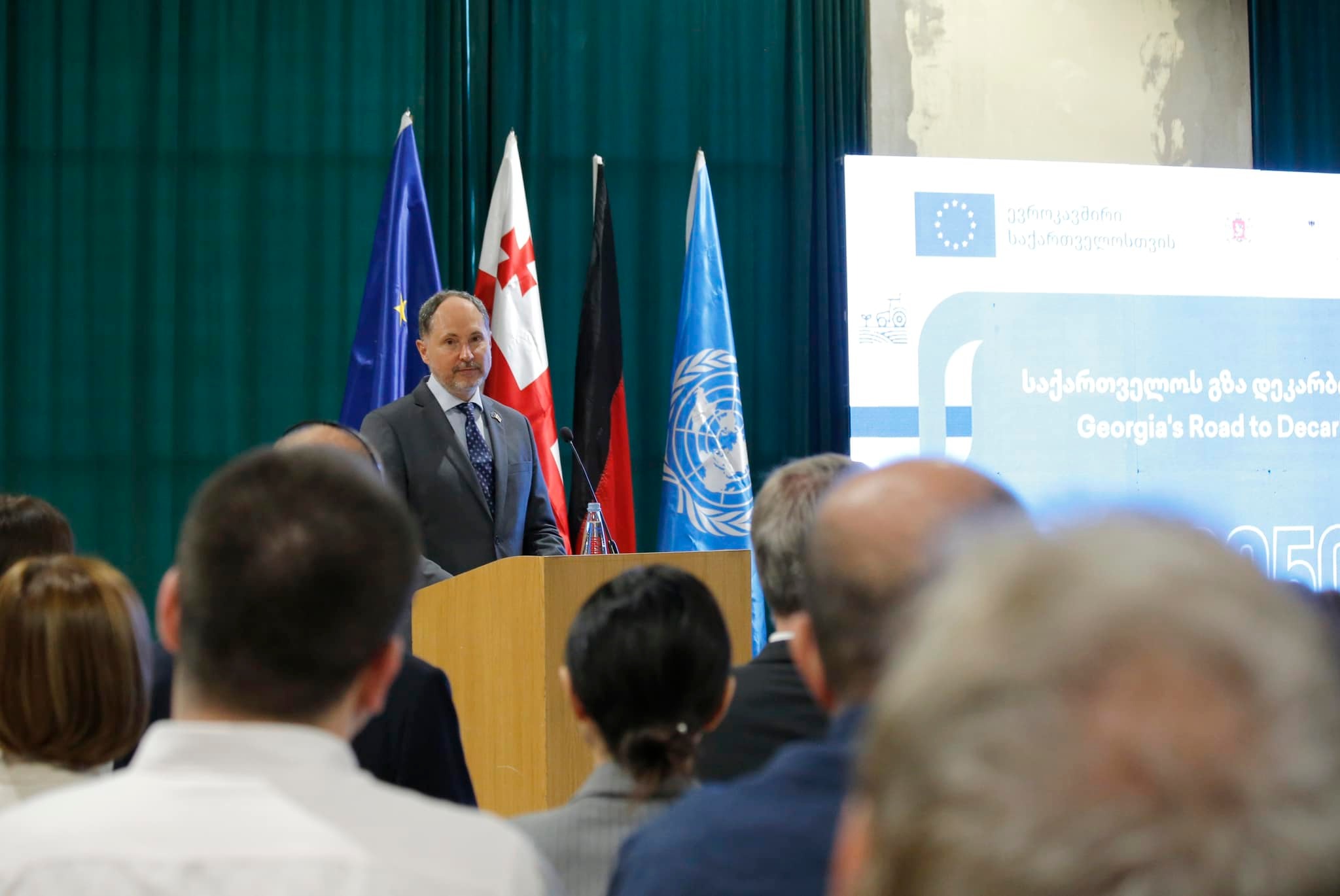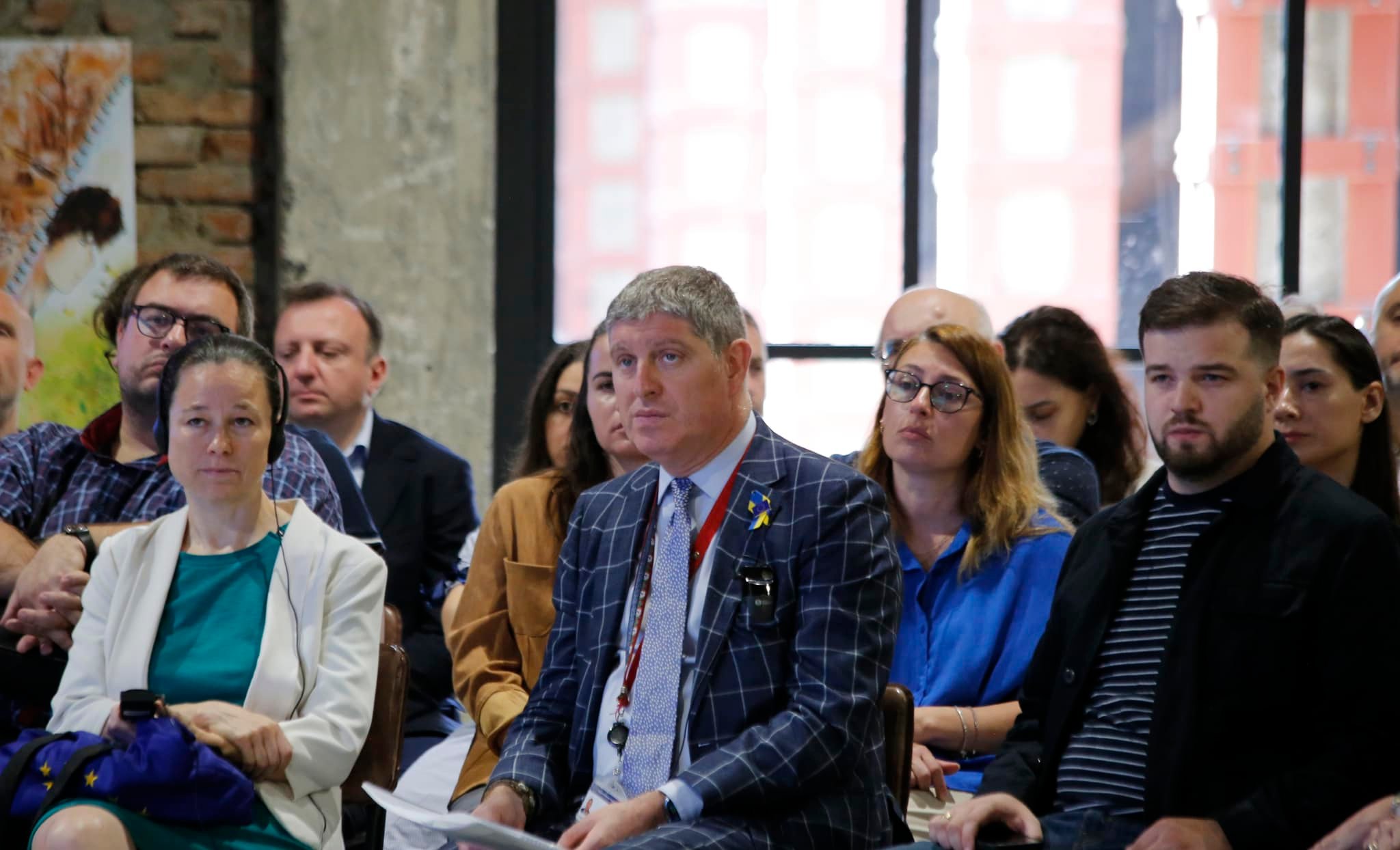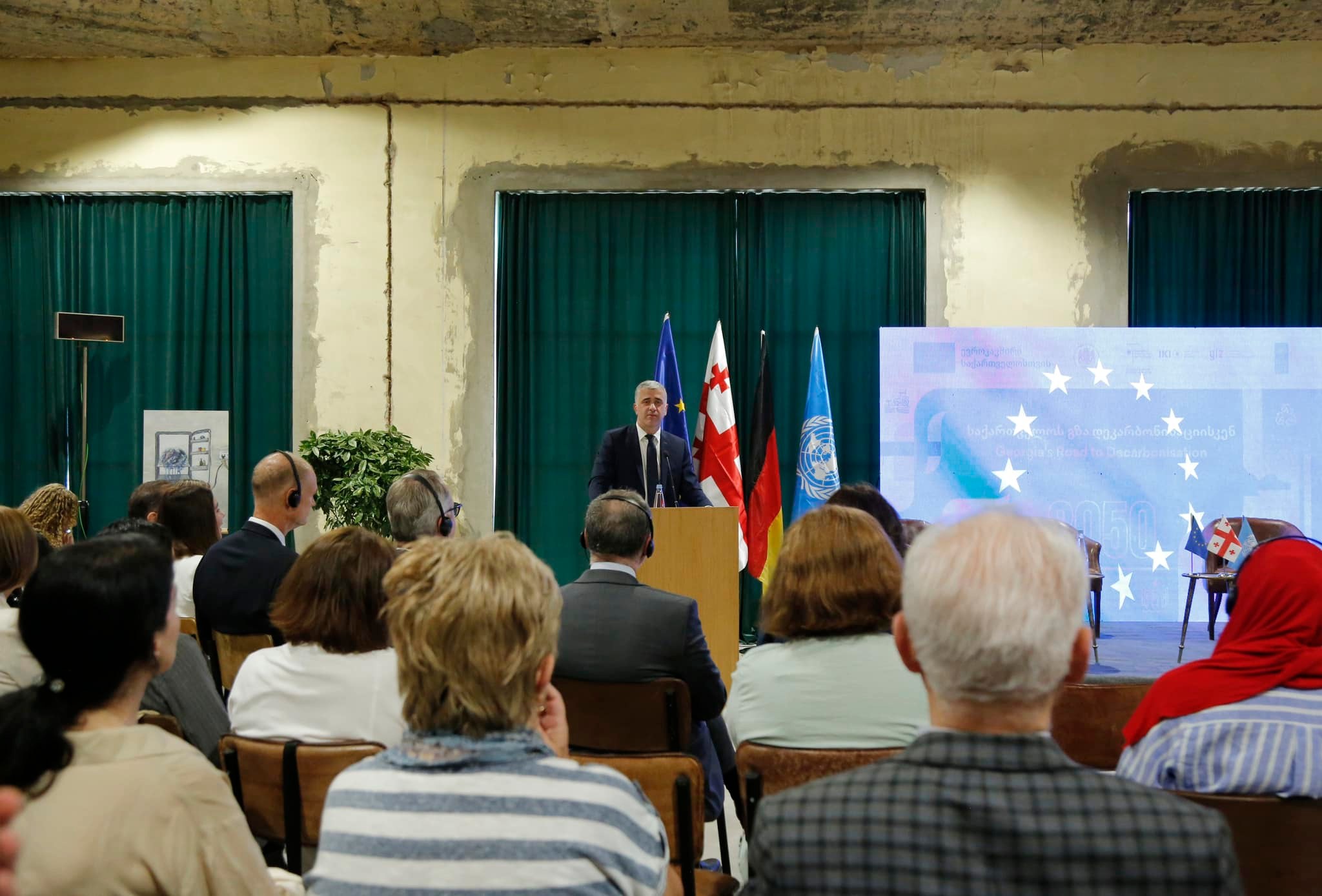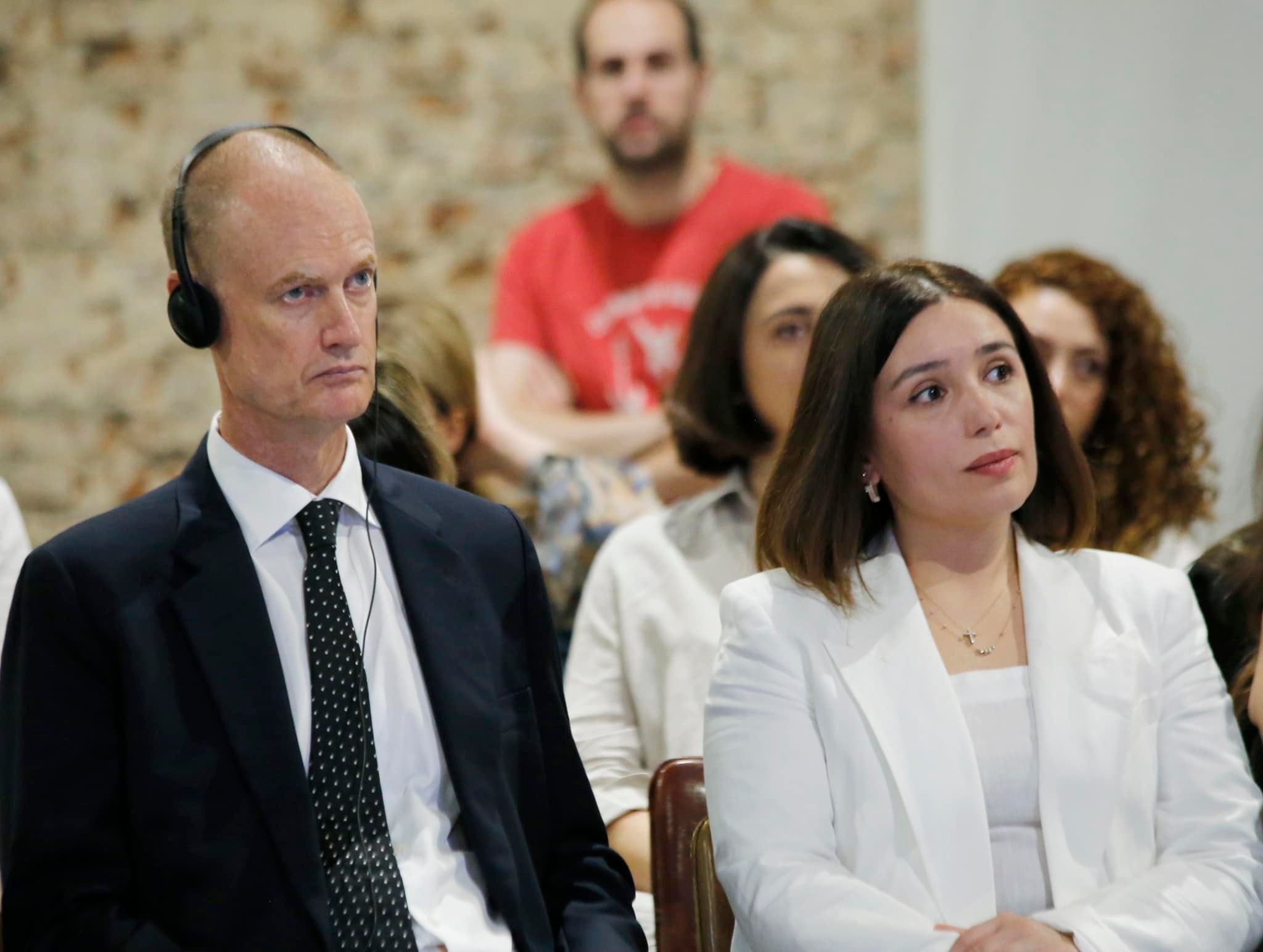News
Public Discussion on Georgia's First Long-Term Low Emission Development Strategy 2050.
The Ministry of Environmental Protection and Agriculture, along with the European Union Representation in Georgia and the United Nations Development Program representatives, presented Georgia's first long-term low-emission development strategy 2050 for public discussion.
The document formally adopted by the Government of Georgia on April 24, 2023, advocates for updating the National Climate Action Plan for 2023-2025.
The Minister of Environmental Protection and Agriculture, Mr. Otar Shamugia, made opening remarks at the event. The Minister thanked the European Union representative in Georgia and the United Nations Development Program representatives for their support.
"Climate change is a global challenge. Developed countries have taken several significant steps to address this challenge during the previous decade. We should mention that small countries joined this process as well. To achieve this goal, we have elaborated a long-term low-emission development concept that incorporates many sectors of the economy, such as construction, industry, transportation, energy, agriculture, and waste management, following extensive work with the cooperation of our partners and various agencies.
The main goal of the concept is to make Georgia carbon neutral by 2050. "The concept completely echoes the approach of the European Union in the climate policy and is one of the main directions within the framework of the Association Agreement," said Mr. Otar Shamugia.
The Ambassador of the European Union to Georgia, Mr. Pavel Herchinskiy emphasized the importance of the low-emission development strategy.
"The Government of Georgia received a very important document resulting from the close cooperation with representatives of the European Union, the United Nations Development Program, and other partners. I am pleased that the European Union is assisting Georgia in its decarbonization efforts," stated Mr. Pavel Herchinskiy.
The low-emission development strategy identifies opportunities to reduce greenhouse gas emissions. It describes priority steps to be taken in various sectors of the economy (energy, construction, transportation, industry, agriculture, waste management, land use, and forest management).
The policy completely conforms with the Paris Agreement and is tailored to Georgia's needs. The Ministry of Environmental Protection and Agriculture elaborated the low-emission development plan with the support of the European Union (EU) and the United Nations Development Program (UNDP), in close cooperation with various public agencies, civil society, and international partners.
The Ministry of Environmental Protection and Agriculture of Georgia developed the Low-emission Development Strategy, with the support of the European Union (EU) and the United Nations Development Program (UNDP), with the involvement of the German Agency for International Cooperation (GIZ) in close cooperation with various public agencies, civil society, and international partners.



